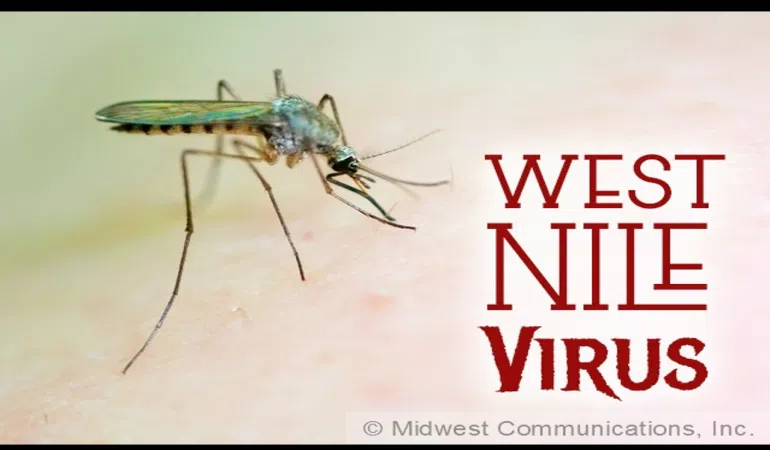SPRINGFIELD, Ill. — The Illinois Department of Public Health announced Wednesday the first mosquitoes to test positive for West Nile in Illinois.
No human cases have been reported so far in 2020, according to IDPH Director Dr. Ngozi Ezike.
Laboratories across Illinois test for the virus in mosquito batches, dead cows, various types of birds, sick horses, and humans with West Nile symptoms.
“It typically happens late May, early June, so we are right on track with previous years,” Ezike said.
West Nile is transmitted through a bite from the Culex pipiens mosquito, otherwise known as a house mosquito, that has picked up the virus by feeding on an injected animal.
“Of course the human cases typically lag a couple months after we identify the first positive mosquitoes,” Ezike said.
“So, we don’t expect to see any human cases until July or August.”
Ezike said that the top symptoms in humans with West Nile is no symptoms.
“80% of people will not show any symptoms at all,” Ezike said.
Humans can see mild such as fever, nausea, headache, and muscle aches. The symptoms could last a few days to a few weeks.
While some people do not show symptoms, Ezike said that some can show severe symptoms.
“Which are characterized by high fever, severe headaches, severe body aches, altered mental status where someone can actually be disoriented,” Ezike said.
Ezike said the most severe cases can result in paralysis or death.
Those over 60 are at a higher risk.
The IDPH recommends the three R’s in Fight the Bite:
Reduce the exposure by keeping doors and windows shut tight. Repair or replace broken screens. Eliminate bodies of standing water where mosquitoes can breed.
Repel mosquitoes when you are outdoors by using bug spray that contains DEET, picaridin, and lemon or eucalyptus oil. It is also recommended to wear shoes and socks, long pants, and a light colored long sleeve shirt.
Report any locations where there is stagnant water for more than a week. Local city health departments can add larvicide to the water, which can kill mosquito larvae.
You can find more information on West Nile HERE.




